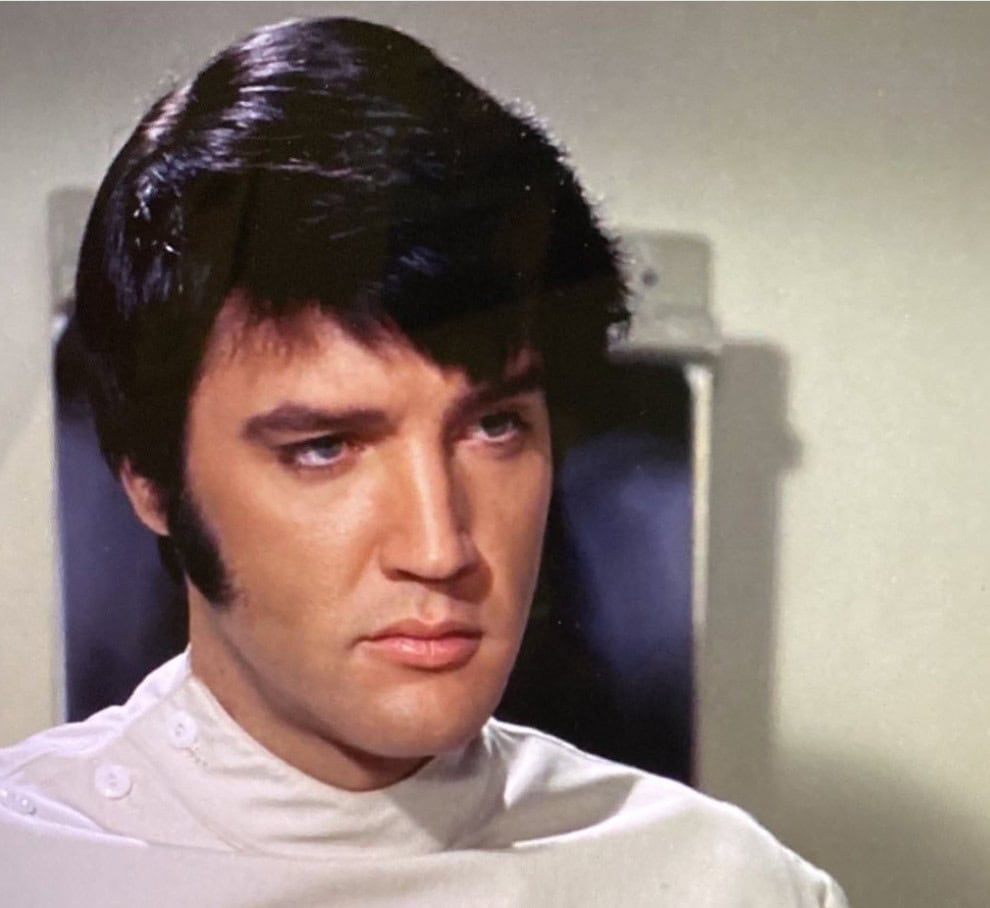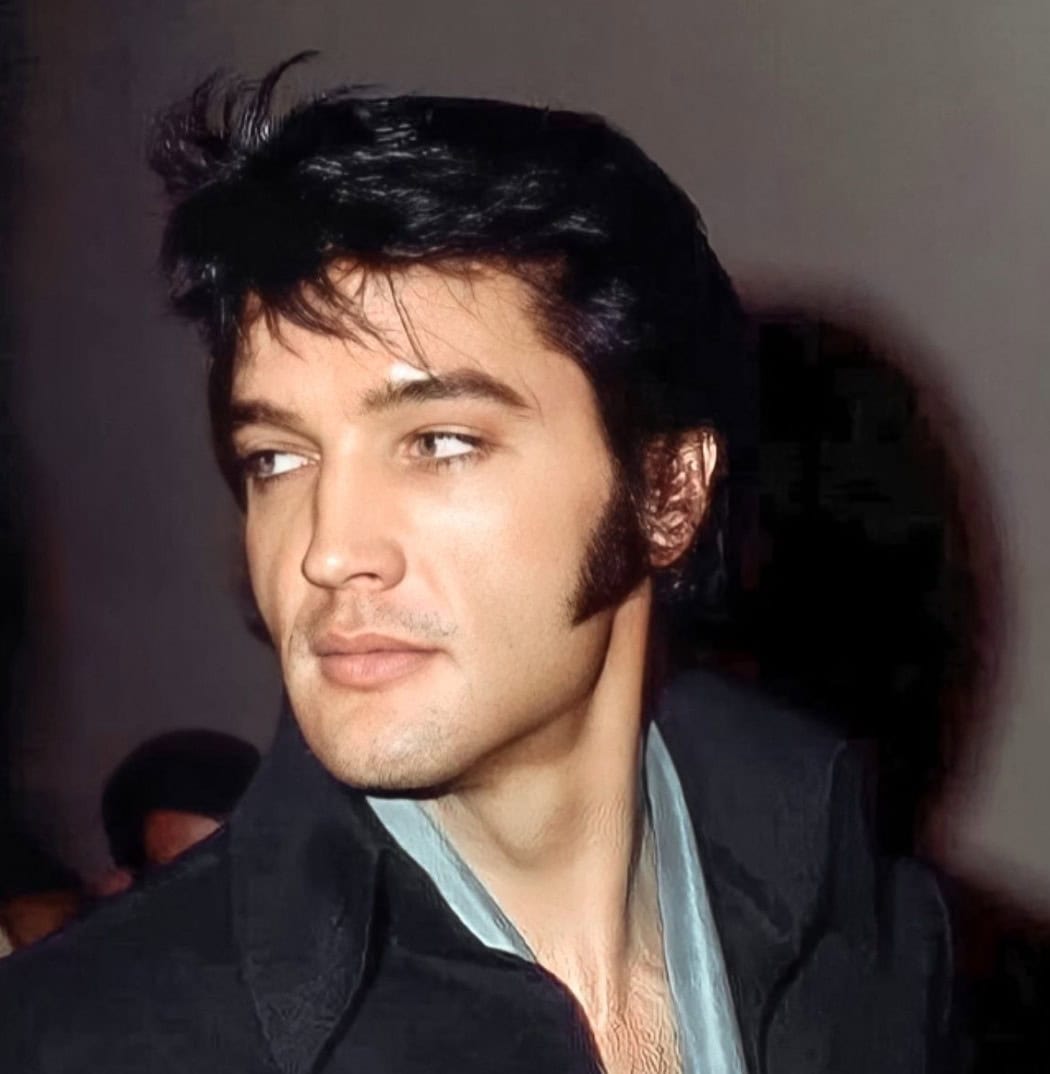Don’t stop here—scroll down to continue reading.

Below is the complete article.
The story of Elvis Presley has often been told through the glittering lens of fame, fortune, and the iconic title of the King of Rock and Roll. Yet behind the flashing lights of Las Vegas stages and the roar of adoring crowds, there was a man who paid a heavy price for his crown. To truly understand Elvis, one must look past the legend and into the fragile heart that carried both extraordinary talent and unbearable loneliness.
Elvis’s rise from a humble background in Tupelo, Mississippi, to becoming one of the most celebrated entertainers in history was nothing short of extraordinary. But with fame came pressures that few could withstand. The demands of constant touring, recording, and performing left him emotionally drained, and the weight of public expectation became almost suffocating. In his search for relief, Elvis turned to prescription drugs—a decision that would lead him down a dark and destructive path.
What began as a way to manage exhaustion and pain slowly grew into a dependence that clouded his spirit. Friends and family saw the toll it took on him: the once-vibrant man became trapped in a cycle of addiction, isolation, and heartache. The world still applauded him, but behind the stage curtains, Elvis struggled to keep himself together. His health declined, his relationships fractured, and the King who once seemed larger than life found himself crumbling under the very spotlight that had made him a legend.
Elvis Presley’s downfall serves as a sobering reminder that even the brightest stars can burn out when the cost of fame becomes too high. His story is not only about music and glory, but also about the hidden battles of a man who gave everything to the world, only to lose himself in the process.
